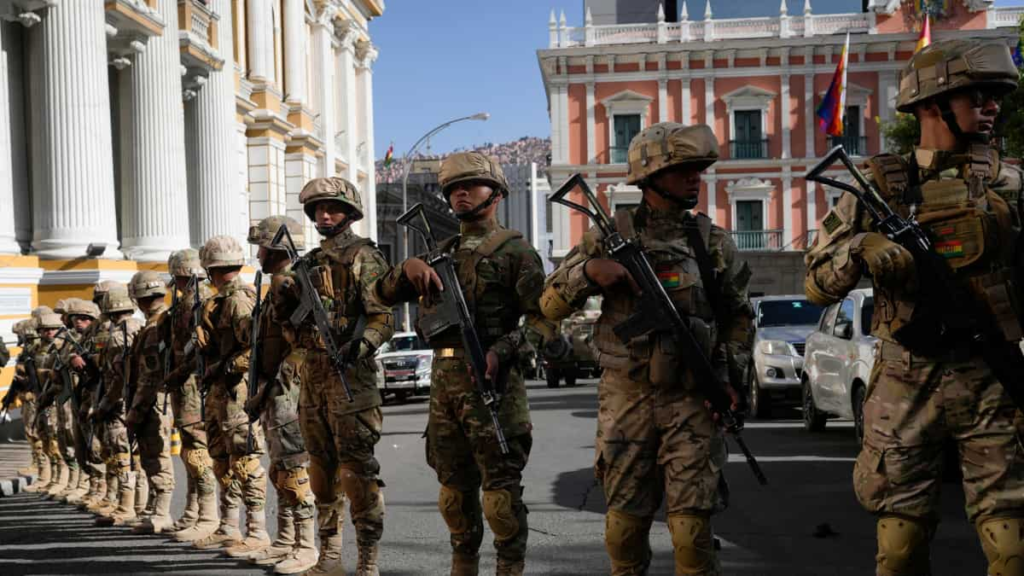Bolivian authorities have arrested the ringleader of a failed coup after troops seized the presidential palace in La Paz on Thursday (June 27).
Armored vehicles and troops had been stationed in Plaza Murillo, where the main government building is located, but have since all withdrawn.
General Juan José Zúñiga, who led the recent military invasion, said he was seeking to re-establish democracy. After initially recognizing President Luis Arce, Zúñiga has signaled a change of government.

President Luis Arce condemned the attempted coup and called on people to “organize and mobilize for democracy.”
“We cannot allow another coup attempt to take the lives of Bolivian people,” the president said in a televised message to the nation.
After the failed coup attempt, President Arce quickly began to consolidate his government, and new military commanders were swiftly appointed, confirming reports that General Zúñiga had been fired.
Zuniga's previous criticism of former President Evo Morales reportedly influenced his dismissal.
President Morales also condemned the coup attempt and called for criminal charges against General Zúñiga and his “accomplices.”
The prosecutor's office has launched a criminal investigation.
Government Minister Eduardo del Castillo said that along with Juan José Zúñiga, former Navy vice admiral Juan Arnes Salvador had also been detained. Both were fired and replaced by President Luis Arce after the unrest began.
“What was the goal of this group? To overthrow a democratically elected government,” del Castillo told reporters.
“General Zuniga wanted to seize power,” he added.

Before his arrest, General Zuniga spoke to reporters in a central square surrounded by soldiers. He cited the country's economic difficulties and framed his actions as a restoration of democracy. But his attempt to seize power ultimately failed.
“The people have no future. The military has the courage to look to the future of their children, to the well-being and progress of their people,” he said, adding that “we will release all political prisoners,” including Bolivia's former president, Jeanine Áñez, who is currently jailed for her role in deadly protests that erupted after the country took power in 2019.
(With input from relevant agencies)



